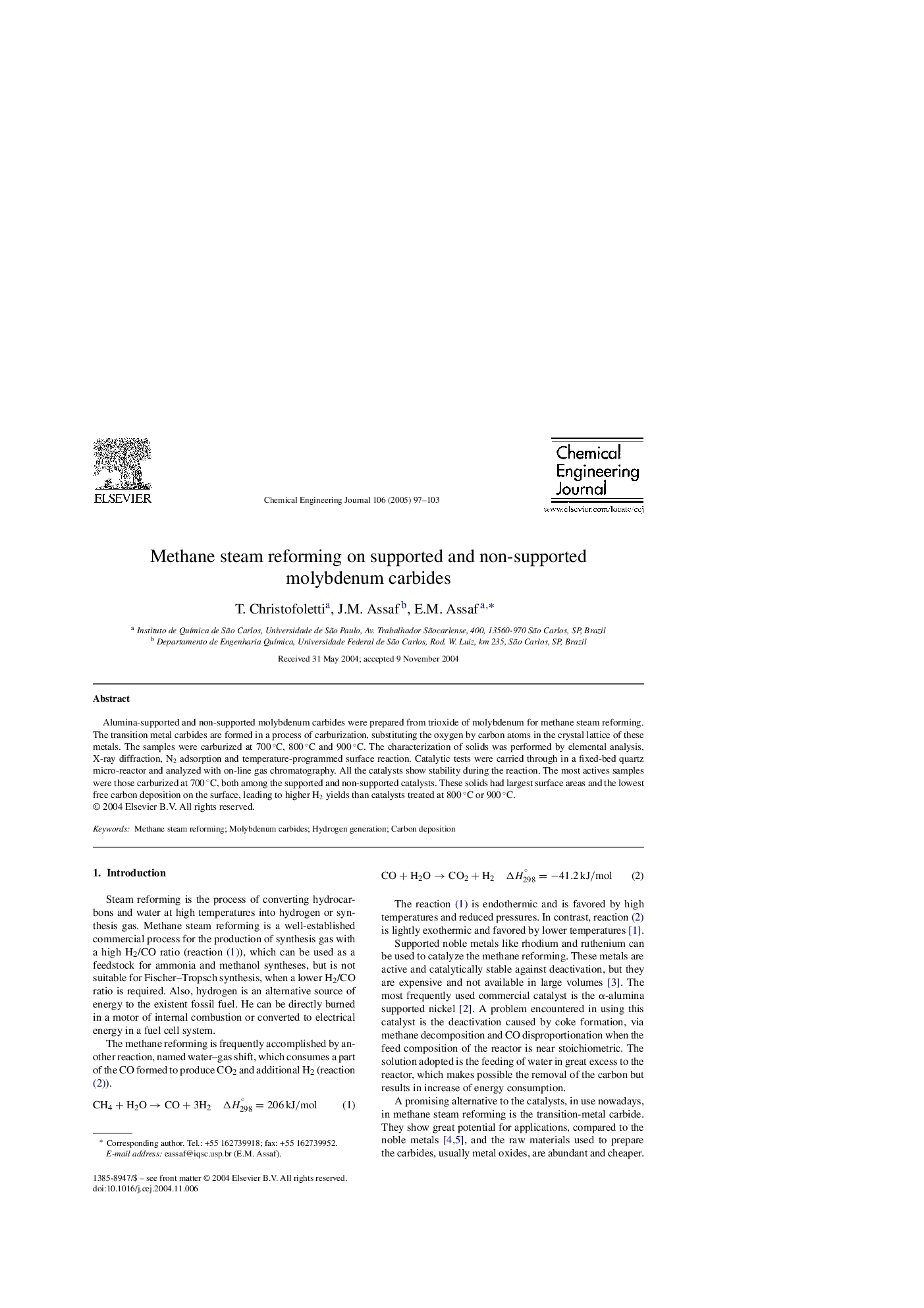| Article ID | Journal | Published Year | Pages | File Type |
|---|---|---|---|---|
| 10261037 | Chemical Engineering Journal | 2005 | 7 Pages |
Abstract
Alumina-supported and non-supported molybdenum carbides were prepared from trioxide of molybdenum for methane steam reforming. The transition metal carbides are formed in a process of carburization, substituting the oxygen by carbon atoms in the crystal lattice of these metals. The samples were carburized at 700 °C, 800 °C and 900 °C. The characterization of solids was performed by elemental analysis, X-ray diffraction, N2 adsorption and temperature-programmed surface reaction. Catalytic tests were carried through in a fixed-bed quartz micro-reactor and analyzed with on-line gas chromatography. All the catalysts show stability during the reaction. The most actives samples were those carburized at 700 °C, both among the supported and non-supported catalysts. These solids had largest surface areas and the lowest free carbon deposition on the surface, leading to higher H2 yields than catalysts treated at 800 °C or 900 °C.
Related Topics
Physical Sciences and Engineering
Chemical Engineering
Chemical Engineering (General)
Authors
T. Christofoletti, J.M. Assaf, E.M. Assaf,
